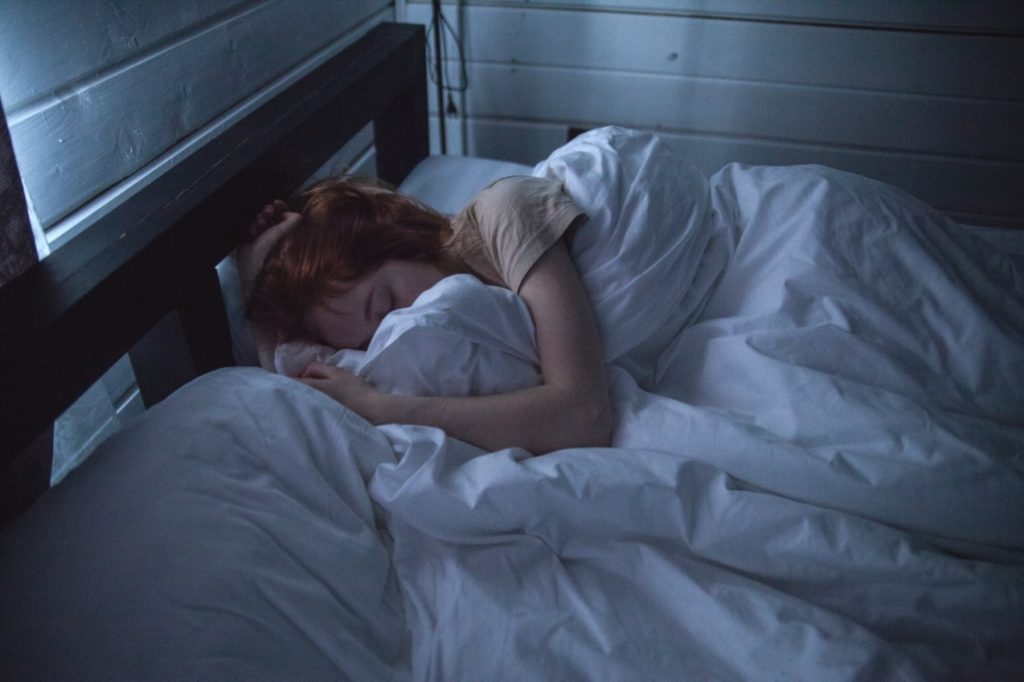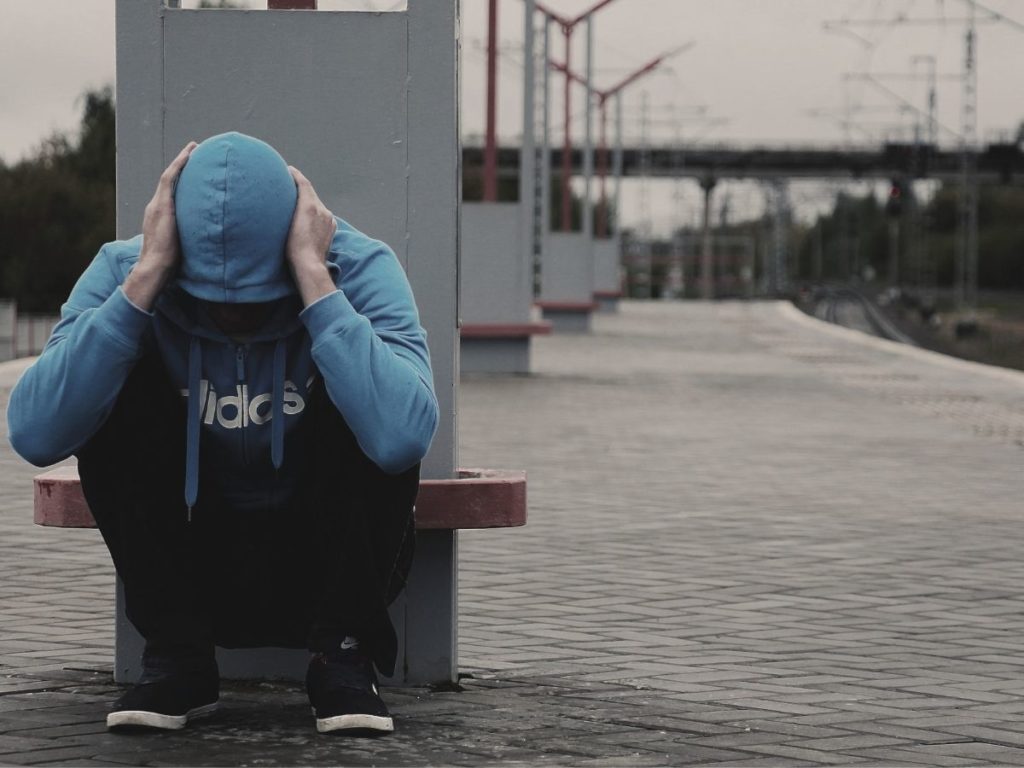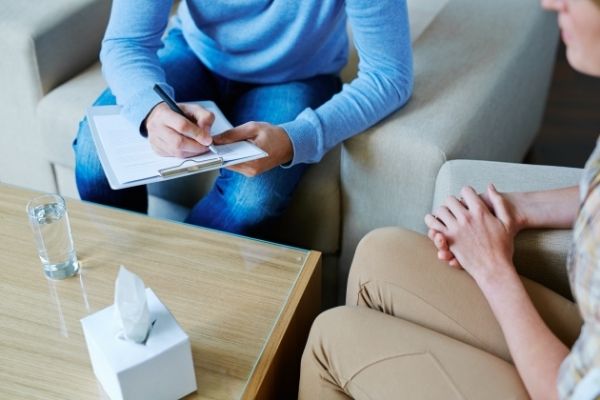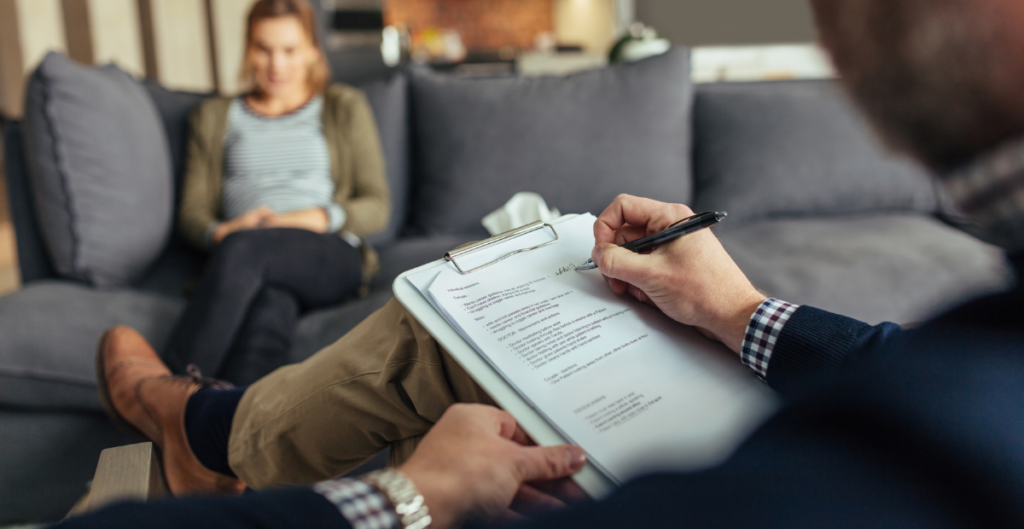What Is Sleep Anxiety?
Anxiety is an experience of everyday life. It typically functions as an internal alarm bell that warns of potential danger and, in mild degrees, anxiety is serviceable to the individual. In anxiety disorders, however, the individual is submitted to false alarms that may be intense, frequent, or even continuous. These false alarms may lead to a state of dysfunctional arousal that often leads to persistent sleep-wake difficulties. Indeed, population surveys indicate that the prevalence of anxiety disorder is about. 24% to 36% in subjects with insomnia, complaints and about 27% to 42% for those with hypersomnia. [1]
Types Of Anxiety
Anxiety is a condition characterized by the subjective and physiologic manifestations of fear. In anxiety disorders, individuals experience apprehension, but, in contrast to fear, the source of the danger is unknown. The physiologic manifestations of fear include sweating, shakiness, dizziness, palpitations, mydriasis, tachycardia, tremor, gastrointestinal disturbances, diarrhea, and urinary urgency and frequency.
Sleep disturbances-particularly insomnia – are highly prevalent in anxiety disorders and complaints such as insomnia or nightmares have even been incorporated in some anxiety disorder definitions, such as generalized anxiety disorder and posttraumatic stress disorder.
Major depression occurs in almost two-thirds of patients with generalized anxiety disorder, panic disorder in a quarter, and alcohol abuse in more than one-third of patients with generalized anxiety disorder. [2]
Generalized anxiety and sleep disorders may be the consequence of medical conditions, psychiatric conditions (mood or anxiety disorders), concomitant medicine treatments or medicine withdrawal, substance abuse (caffeine, nicotine, alcohol), stress, and bad habits.

Effects Of Insomnia
Insomnia is a disturbance of normal sleep patterns, with adverse daytime consequences. It affects up to 50% of all adults at some point in their life. The prevalence of insomnia seems to be higher in women and in late life. Individuals with insomnia report difficulty falling asleep or remaining asleep, and usually feel non-restored from sleep.
Who Gets Sleep Anxiety?
Sleep anxiety can affect adults, teens, and children. You may be more likely to develop anxiety at night if you have a sleep disorder such as:
- Insomnia
- Narcolepsy
- Restless legs syndrome (RLS)
- Sleep apnea
- Sleepwalking
People with the following mental health disorders may also develop nighttime anxiety:
- Anxiety disorders
- Bipolar disorder
- Depression
- Drug addictions or alcoholism
- Panic disorder
- Post-traumatic stress disorder (PTSD)
- Schizophrenia

How Common Is Sleep Anxiety?
Anxiety disorders are considered the most, frequently occurring category of mental disorder in the general population. Estimates of the lifetime prevalence of anxiety disorders have ranged between 10% and 25 %. Epidemiological studies have also demonstrated the high prevalence of sleep complaints. As much as one-third of the adult population reports difficulty sleeping and sleep disturbance is considered as the second most common symptom of mental distress.
What Causes Sleep Anxiety?
Anxiety is a natural part of being human. We’re meant to feel afraid or worried in dangerous situations. Stress and anxiety trigger our bodies to release hormones that help us react quickly to escape harm. But if you have chronic anxiety, you might feel stress or worry all the time. You may feel fearful of everyday situations like driving to work or even falling asleep.
Chronically high levels of these hormones, especially before sleep, can make it hard for your body to relax. You may have difficulty falling asleep. If you do fall asleep, you may wake up during the night with stressful or worrisome thoughts and not be able to fall asleep again. The combination of anxiety and insomnia can also be caused by a condition where there isn’t enough thyroid hormone in your bloodstream and your metabolism slows down (hypothyroidism).
Sleep Anxiety Symptoms
When you can’t sleep due to anxiety, you may experience behavioral changes, including:
- Feelings of being overwhelmed
- Inability to concentrate
- Irritability
- Nervousness
- Restlessness
- Sense of impending danger or doom
Physical effects of anxiety before bed may include:
- Digestive problems
- Fast heart rate
- Rapid breathing
- Sweating
- Tense muscles
- Trembling
Some people also have nocturnal panic attacks. A panic attack is a sudden, intense burst of extreme fear. Nocturnal panic attacks only happen at night, and often wake you from sleep.
Anxiety Sleep Medication
Preliminary assessment and initial sleep anxiety management strategies:
- In evaluating patients with anxiety and/or sleep disorders health care providers should initially consider possible underlying medical causes, including hyperthyroidism and other endocrine illnesses, cardiac problems, and other organ system dysfunctions. Medicine use (caffeine, cocaine) and medicine or substances withdrawal (alcohol withdrawal, opiates withdrawal, benzodiazepines withdrawal) can cause anxiety and insomnia. If medical disorders, medicine use or withdrawal is a plausible reason for anxiety, the underlying cause should be removed or treated.
- If medical disorders, medicine use or withdrawal is not a plausible reason for anxiety or insomnia, health care providers might investigate whether major depression or other psychiatric disorders are present. If another psychiatric disorder is present, health care providers should treat that disorder first.
- In individuals with sleep disorders, if no psychiatric comorbidities are present, health care providers may suggest educational interventions, such as going to bed at the same time, reserving the bed for sleep, reducing caffeine intake, and avoiding strenuous exercise or mental activities near bedtime.
- In individuals with anxiety disorders, if no psychiatric comorbidities are present, health care providers may explain to the patient that chest pain, indigestion, sweating, and sexual dysfunction are symptoms of anxiety.
Short-term sleep anxiety treatment with benzodiazepines:
- Health care providers should initially consider non-pharmacological treatment strategies. Empathic listening, reassurance and guidance should always be offered. Additionally, specific psychotherapeutic techniques, such as cognitive-behavioral therapy, are effective measures to reduce anxiety and insomnia, and non specific supportive therapy may initially be offered to patients with uncomplicated generalized anxiety or sleep disorders. Relaxation techniques may additionally be offered.
- Benzodiazepines are a group of structurally-related compounds that reduce anxiety when given at low doses and induce sleep at higher doses. Clinical guidelines generally recommend to prescribe benzodiazepines to treat anxiety or insomnia that is severe, disabling and causing extreme distress. Health care providers should consider that benzodiazepine use is associated with dependence liability and withdrawal symptoms, and should therefore be used at the lowest effective dose for the shortest period of time (maximum 4 weeks).
- The use of benzodiazepines is under international control. These agents are internationally regulated by the Convention on Psychotropic Substances, 1971 (United Nations).
- Health care providers should consider that, in addition to international control, benzodiazepine use may be under national control. Health care providers must therefore comply with national, regional and local regulations.

- Benzodiazepines can be grouped, according to their elimination half-life, into short/intermediate and long half-life agents. Short/intermediate half-life agents include alprazolam (intermediate), lorazepam (short), oxazepam (short), temazepam (intermediate) and triazolam (ultra-short); long half-life agents include diazepam, chlordiazepoxide, flurazepam and nitrazepam. Benzodiazepines with short elimination half-life are preferred to minimize daytime sedation, but they can cause rebound symptomatology more often than agents with longer elimination half-life.
- Ultra-short benzodiazepines are generally not recommended due to the possibility of rebound symptomatology.
- Benzodiazepines hasten sleep onset, decrease nocturnal awakenings, increase total sleeping time, and reduce pathological anxiety, agitation and tension.
- According to the WHO EML, essential medicine for anxiety and sleep disorders is diazepam. Diazepam is indicated as an example of the class for which there is the best evidence for effectiveness and safety. Thus diazepam represents benzodiazepines.
- In individuals with insomnia, if short-acting agents such as lorazepam are available, these are generally used when residual sedation is undesirable, if falling asleep is a problem, or, when necessary, in elderly patients. Longer-acting benzodiazepines such as diazepam are indicated when early waking is a problem and possibly when an anxiolytic effect is needed during the day or when some impairment of psychomotor function is acceptable.
- Health care providers should consider that in recent years non-benzodiazepine hypnotics such as zopiclone and zolpidem have progressively become widely used in individuals with insomnia. However, these agents may be as likely as the benzodiazepines to cause rebound symptoms, dependence and other adverse reactions.
- In individuals with generalized anxiety disorder health care providers may consider using a benzodiazepine only for a limited course of time. The main objective may be to reduce symptoms enough to allow the patient to engage in treatments based on cognitive-behavioral techniques. A short course (maximum 4 weeks) started at the lowest possible dose for a pre-defined duration of treatment may be used for initial management. Diazepam may be indicated when an anxiolytic effect is needed during the day and a hypnotic effect is required at night.
Considering that major depression often complicates anxiety symptoms, health care providers should consider using antidepressants. Some tricyclic antidepressants (imipramine, clomipramine) and selective serotonin reuptake inhibitors have been shown to be effective for treating patients with generalized anxiety alone or in association with depression. Antidepressants may be prescribed at low doses initially, and then treatment may be up-titrated into the normal antidepressant dosage. Treatment response should be assessed after six weeks.
In the pharmacological treatment of insomnia that is severe and disabling a benzodiazepine may be considered only for a short period of time (maximum 4 weeks). In patients with generalized anxiety, health care providers may prescribe a benzodiazepine to rapidly relieve symptoms, and consider antidepressants when depression is present or when long-term therapy is needed. [2]
How To Sleep With Anxiety Tips
Sleep usually improves when an anxiety disorder is treated. Practicing good “sleep hygiene” helps, too. Here are some steps to take:
- Go to bed and wake up at the same time every day, even on weekends.
- Daylight helps set sleep patterns, so try to be outdoors while it’s light out for 30 minutes a day.
- Exercise regularly (but not too close to bedtime). An afternoon workout is ideal.
- Keep naps short — less than an hour — and forgo napping after 3 p.m.
- Avoid caffeine (found in coffee, many teas, chocolate, and many soft drinks), which can take up to eight hours to wear off. You may need to avoid caffeine entirely if you have panic attacks; many people who experience panic attacks are extra-sensitive to caffeine.
- Review your medications with a doctor to see if you are taking any stimulants, which are a common culprit in keeping people up at night. Sometimes it’s possible to switch medicines.
- Avoid alcohol, large meals, foods that induce heartburn, and drinking a lot of fluid for several hours before bedtime.
- If you smoke, quit. Smoking causes many health problems, including compromising sleep in a variety of ways.
- Keep your bedroom cool, dark, and quiet, without distractions like TV or a computer. Avoid using an electronic device to read in bed; the light from the screen can trick your brain into thinking it is daytime. If your mattress is uncomfortable, replace it.
- Reading, listening to music, or relaxing before bed with a hot bath or deep breathing can help you get to sleep.
- If you don’t fall asleep within 20 minutes of turning in (or if you wake up and can’t fall back to sleep in 20 minutes), get out of bed and do something relaxing until you feel sleepy. [3]
Co-Occurring Treatment
Mental health and substance use disorders affect people from all walks of life and all age groups. These illnesses are common, recurrent, and often serious, but they are treatable and many people do recover. Mental disorders involve changes in thinking, mood, and/or behavior. These disorders can affect how we relate to others and make choices. Reaching a level that can be formally diagnosed often depends on a reduction in a person’s ability to function as a result of the disorder. For example:

- Serious mental illness such as sleep anxiety is defined by someone over 18 having (within the past year) a diagnosable mental, behavior, or emotional disorder that causes serious functional impairment that substantially interferes with or limits one or more major life activities.
- Substance use disorders occur when the recurrent use of alcohol and/or drugs causes clinically significant impairment, including health problems, disability, and failure to meet major responsibilities at work, school, or home. [4]
Receive treatment for co-occurring disorders today.
As the addiction treatment community begins to realize that addiction is itself a mental disorder, the relationship between substance abuse and mental disorders becomes more complicated. The greater treatment community largely lacks a proper understanding of dual diagnosed conditions, so these conditions are still treated separately, or worse–not treated or diagnosed at all. We Level Up dual diagnosis treatment center in TX have professionals trained to help treat co-occurring disorders concurrently. This type of tandem treatment provides some of the best success rates.
Get dual diagnosis treatment for individuals struggling with substance abuse and mental health disorders. Call We Level Up TX today for more information about sleep anxiety treatment!
Sources:
[1] Sleep and anxiety disorders – National Center for Biotechnology Information, U.S. National Library of Medicine
[2] Medicines used in generalized anxiety and sleep disorders – National Center for Biotechnology Information, U.S. National Library of Medicine?
[3] Tips for beating anxiety to get a better night’s sleep – https://www.health.harvard.edu/mind-and-mood/tips-for-beating-anxiety-to-get-a-better-nights-sleep
[4] Mental Health and Substance Use Disorders – Substance Abuse and Mental Health Service Administration